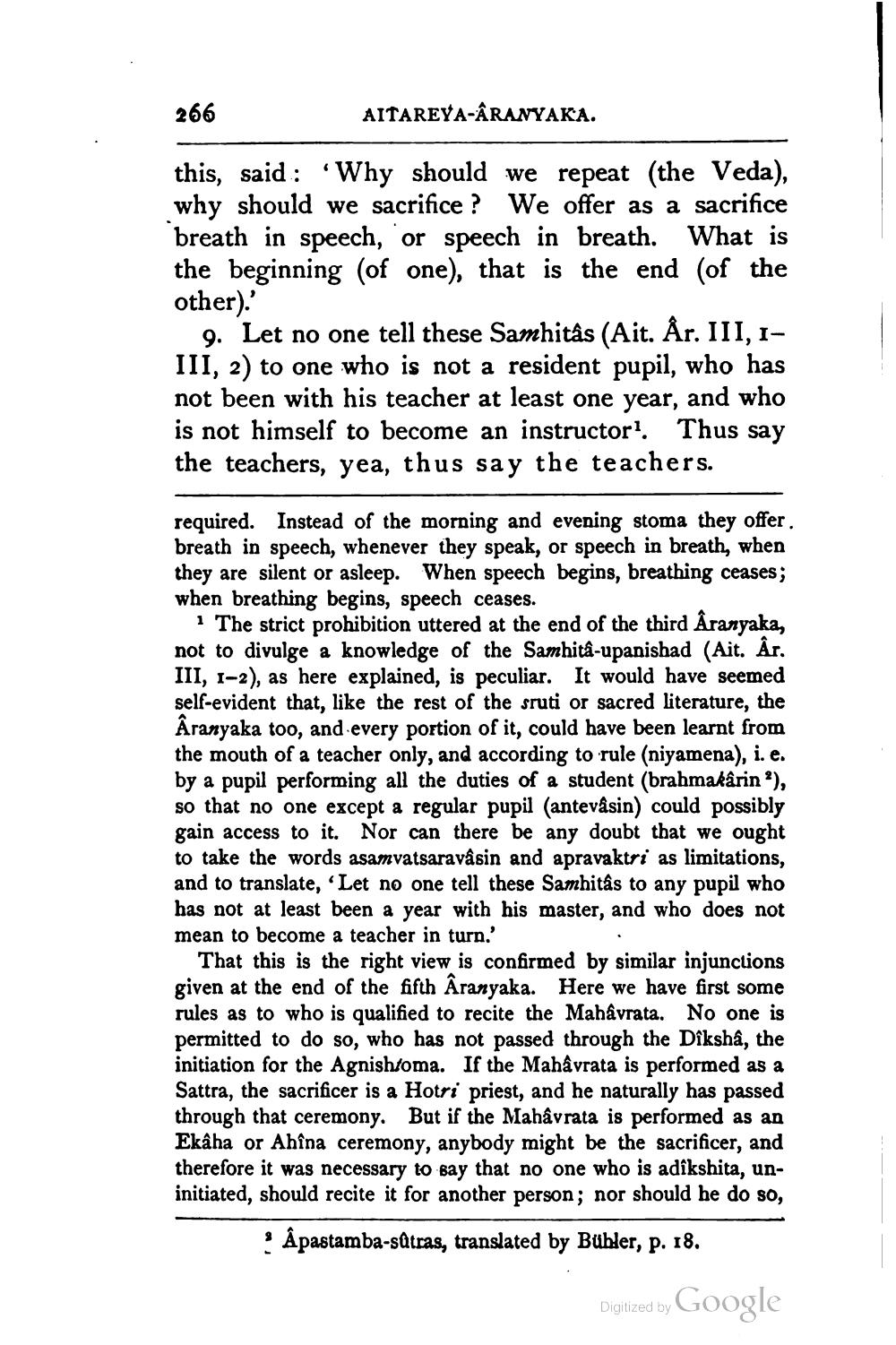________________
266
AITAREYA-ARANYAKA.
this, said: "Why should we repeat (the Veda), why should we sacrifice? We offer as a sacrifice breath in speech, or speech in breath. What is the beginning (of one), that is the end (of the other).'
9. Let no one tell these Samhitas (Ait. År. III, 1III, 2) to one who is not a resident pupil, who has not been with his teacher at least one year, and who is not himself to become an instructor? Thus say the teachers, yea, thus say the teachers.
required. Instead of the morning and evening stoma they offer . breath in speech, whenever they speak, or speech in breath, when they are silent or asleep. When speech begins, breathing ceases; when breathing begins, speech ceases.
1 The strict prohibition uttered at the end of the third Aranyaka, not to divulge a knowledge of the Samhita-upanishad Ar. III, 1-2), as here explained, is peculiar. It would have seemed self-evident that, like the rest of the sruti or sacred literature, the Aranyaka too, and every portion of it, could have been learnt from the mouth of a teacher only, and according to rule (niyamena), i. e. by a pupil performing all the duties of a student (brahmakârino, so that no one except a regular pupil (antevâsin) could possibly gain access to it. Nor can there be any doubt that we ought to take the words asamvatsaravasin and apravaktri as limitations, and to translate, 'Let no one tell these Samhitâs to any pupil who has not at least been a year with his master, and who does not mean to become a teacher in turn.'
That this is the right view is confirmed by similar injunctions given at the end of the fifth Aranyaka. Here we have first some rules as to who is qualified to recite the Mahâvrata. No one is permitted to do so, who has not passed through the Diksha, the initiation for the Agnishłoma. If the Mahâvrata is performed as a Sattra, the sacrificer is a Hotri priest, and he naturally has passed through that ceremony. But if the Mahâvrata is performed as an Ekâha or Ahîna ceremony, anybody might be the sacrificer, and therefore it was necessary to say that no one who is adîkshita, uninitiated, should recite it for another person; nor should he do so,
Âpastamba-sätras, translated by Bühler, p. 18.
Digitized by Google




